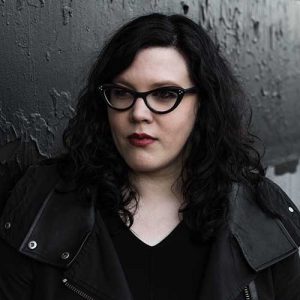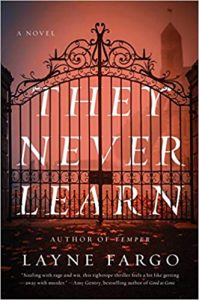 Welcome to the Pitch Wars Workshops with some of our amazing past and 2020 mentors. From a lottery drawing, we selected writers to receive a query and first page critique from one of our mentors. We’ll be posting some of the critiques leading up to the Pitch Wars submission window. Our hope is that these samples will help you in shining up your query and first page.
Welcome to the Pitch Wars Workshops with some of our amazing past and 2020 mentors. From a lottery drawing, we selected writers to receive a query and first page critique from one of our mentors. We’ll be posting some of the critiques leading up to the Pitch Wars submission window. Our hope is that these samples will help you in shining up your query and first page.
We appreciate our mentors for generously dedicating their time to do the critiques. If you have something encouraging to add, feel free to comment below. Please keep all comments tasteful. Our comments are set to moderate, and we will delete any inappropriate or hurtful ones before approving them.
Next up we have …
Pitch Wars Mentor Layne Fargo

Layne Fargo is a thriller author and the cocreator of the podcast Unlikeable Female Characters. Her 2017 Pitch Wars novel, TEMPER, came out in 2019, and her second book THEY NEVER LEARN hits shelves in October 2020. Layne lives in Chicago with her partner and their pets.
Website | Twitter | Facebook | Instagram
Layne’s upcoming release
 Scarlett Clark is an exceptional English professor. But she’s even better at getting away with murder.
Scarlett Clark is an exceptional English professor. But she’s even better at getting away with murder.
Every year, she searches for the worst man at Gorman University and plots his well-deserved demise. Thanks to her meticulous planning, she’s avoided drawing attention to herself—but as she’s preparing for her biggest kill yet, the school starts probing into the growing body count on campus. Determined to keep her enemies close, Scarlett insinuates herself into the investigation and charms the woman in charge, Dr. Mina Pierce. Everything’s going according to her master plan…until she loses control with her latest victim, putting her secret life at risk of exposure.
Meanwhile, Gorman student Carly Schiller is just trying to survive her freshman year. Finally free of her emotionally abusive father, all Carly wants is to focus on her studies and fade into the background. Her new roommate has other ideas. Allison Hadley is cool and confident—everything Carly wishes she could be—and the two girls quickly form an intense friendship. So when Allison is sexually assaulted at a party, Carly becomes obsessed with making the attacker pay…and turning her fantasies about revenge into a reality.
Featuring Layne Fargo’s trademark “propulsive writing style” (Kirkus Reviews) and “sinister, of the moment” (Chicago Review of Books) suspense, They Never Learn is a feminist serial killer story perfect for fans of Killing Eve and Chelsea Cain.
Layne’s critique
Category: Adult: Women’s Contemporary Fiction
Query:
TITLE is a contemporary woman’s fiction novel that examines a family fractured by grief. [Excellent, succinct description of the book here! This sets the stage well, so the reader knows exactly what kind of story they’ll be getting.] At the core of the story is the Harding family: Nick, Emma, Jess and Toby. When Toby commits suicide at the age of seventeen with no warning or explanation their family is torn apart. [These next two sentences are not as dynamic as they could be, though. Could you try weaving these expository details into the following sentences? For example, you could say, “Two years after their brother Toby’s suicide tore the family apart” and then get right into Nick, Jess, Emma, and the present-day conflict between them.] Two years after Toby’s death, Nick and Jess tell Emma to sell the family home, and she agrees it is time to move on. But to do that Emma must accept the family she has spent most of her adult life nurturing is gone. [If Emma is the primary protagonist, with Nick and Jess as secondary POVs, then I’d love to get more insight into her here. Why does she feel more responsible than the others? Because she’s the oldest? Because she had the closest relationship to Toby? (Actually I’m realizing that I’ve been assuming all four characters are siblings, but you haven’t actually said so—might be worth clarifying one way or another!)] She is angry, full of guilt and blame. Why did they not see the signs more clearly? The novel explores these three characters, the intricacies of their grief, and their journey back to each other. [I’m missing a sense of urgency and conflict here—why do they need to sell the house now? How, exactly, did Toby’s death “tear apart” their family? This is clearly a book about family relationships and emotional growth, but giving us a clearer picture of where, specifically, the characters are at the start of the story and why this is the moment they must finally change will help hook the reader.]
I have always been drawn to dysfunctional family dramas, both in literature and film. Anne Tyler, Anna Quidlen, Donna Tartt: at the heart of these novels, characters are lost but ultimately find a way back, in new and unexpected ways. [I would leave out this mention of your affinity for this type of book—though it’s good to include comparative titles and/or authors! If you can include a more recent comp too, that would be great; one that came to mind as I was reading your query is You and Me and Us by Alison Hammer.] As a divorced mother of four adult children, I’m something of an expert in family matters, and the recent death of my daughter’s boyfriend at the age of nineteen prompted me to explore what a tragedy like this can do to a family. I started writing poetry as a teenager and went on to be editor of my University literary magazine. I continued with a career in publishing and went on to write a blog for several years about motherhood. In the last few years, I’ve worked on this novel with the help of the Faber Academy Work in Progress course and the Cornerstones Edit Your Novel course. [I’d recommend trimming down this paragraph—stick to the essentials! If you don’t have previous publishing credits, the bio in your query is really just intended to give the recipient a brief glimpse at the person behind the book.]
First page:
The doorbell rings and there is a shuffling noise from behind the door. Emma scurries into the downstairs loo. Once a broom cupboard; it was the builder’s idea to convert it and she agreed. [Not sure this detail is necessary here; the next line establishing the cramped dimensions of the space is enough for the reader to go on.] A room so small, you can almost wash your hands while on the toilet.
Emma thinks back to the beginning, when the space became her hiding place. [So is this her normal reaction to a knock at the door now? Does she always hide, or is there some specific reason she’s hiding today?] The brass knocker on the front door and its constant tapping. The bouquets with notes tucked in between the buds. Lilies for the departed, white roses for the soul, pink carnations for remembrance. The nameless men looking over her shoulder, down the hall to see if anyone else was there, avoiding her bloodshot eyes at all cost. Followed by ‘signature here, please,’ her cuticle-bitten index finger transformed into a pen on the handheld computer screen. She had racked her brain for something to say – a ‘hello’ or ‘how are you?’ A polite person says ‘thank you’ even in their darkest hour. Isn’t that what her parents taught her? [You’ve got lots of beautiful, evocative details here, but spending so much of the first page in what’s essentially flashback is slowing down your pace and making it more difficult for the reader to orient themselves in the scene. Consider saving some of these details for later in the book, and stay more in the present with Emma here.]
‘Fuck that,’ Emma thinks as she crouches, curling her back over her knees. [I like her already!]
Nick, Jess and her mother were all there. Greeting people, shaking hands, jotting messages down – her mother particularly fond of reading out the morbid memorandums contained within the condolence cards. ‘This one is from his headmaster, it says, ‘May God give you comfort in your time of grief.’
But Emma is an atheist, always has been. [This is a fabulous detail too—already setting her at odds with the rest of her family!—but again, I think you’d do better to stay in the present moment for as much of this opening scene as you can, and then fill in these memories later in the book.]
She stares down at the warped wooden floor, where the toilet flooded and soaked its fibres. The front of her face now resting in the space between her knees, her arms wrapped around her legs. Maybe it is her mother at the door today. She has a habit of popping round when at a loose end after bridge or to force a chilled, leftover lasagna on her. ‘It’s important to eat,’ she never tires of saying (different from when Emma was a teenager and all she said was ‘that’s enough, don’t you think’). [I want to be deeper in Emma’s POV here. Why is she hiding? What is she feeling? I assume she’s having some kind of anxiety attack, but there’s not a lot in her narration to help us feel what she’s feeling.]
‘Emma, I know you’re in there. Open the door.’ Nick’s voice reverberates down the hallway.
2 Comments
Jesse Liberty · September 11, 2020 at 3:14 pm
Hi,
Serious genre question. What makes contemporary fiction “women’s contemporary?” Is there a generic contemporary fiction? I’m struggling to figure out what genre to say my book fits into (its actual genre is autobiographical. fiction but that is never a choice).
Thanks!
Brenda Drake · September 11, 2020 at 8:31 pm
Hi Jesse, I don’t know how to answer this since I don’t write in that category/genre. You could post your question in the Pitch Wars forum or ask it during our ask mentor tomorrow on Twitter.
Comments are closed.